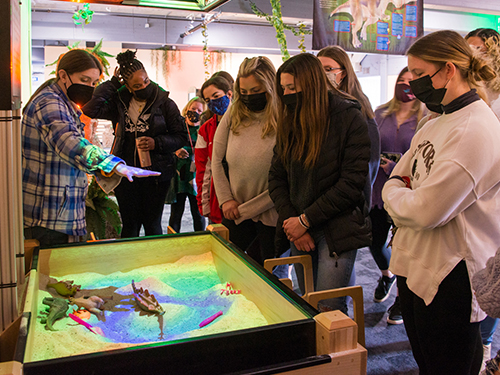
Noyce Scholarship Program
In This Section
In This Section
What is the Noyce Scholarship?
 The Robert Noyce Teacher Scholarship Program, funded by the National Science Foundation (NSF), responds to the critical need for K-12 teachers of science, technology, engineering, and mathematics (STEM) by encouraging talented students with a passion in STEM to pursue teaching careers. Sacred Heart University’s Noyce Scholarship Program seeks to increase the number, quality, and effectiveness of elementary, secondary biology, and secondary mathematics teachers interested in teaching in high-needs school districts across the United States. The Noyce Scholarship program provides scholarships beginning with junior and senior years at Sacred Heart University, as well as funding to complete their Master of Arts in Teaching. Students will have opportunities to participate in specially designed seminars and courses to enhance their preparation as elementary, secondary biology, or secondary math teachers, as well as field experience specific to STEM education. Candidates will become trained to take their place in the exciting world of STEM education in conjunction with the cultural competence, pedagogical knowledge, and dispositions to be a successful teacher in a high needs school district.
The Robert Noyce Teacher Scholarship Program, funded by the National Science Foundation (NSF), responds to the critical need for K-12 teachers of science, technology, engineering, and mathematics (STEM) by encouraging talented students with a passion in STEM to pursue teaching careers. Sacred Heart University’s Noyce Scholarship Program seeks to increase the number, quality, and effectiveness of elementary, secondary biology, and secondary mathematics teachers interested in teaching in high-needs school districts across the United States. The Noyce Scholarship program provides scholarships beginning with junior and senior years at Sacred Heart University, as well as funding to complete their Master of Arts in Teaching. Students will have opportunities to participate in specially designed seminars and courses to enhance their preparation as elementary, secondary biology, or secondary math teachers, as well as field experience specific to STEM education. Candidates will become trained to take their place in the exciting world of STEM education in conjunction with the cultural competence, pedagogical knowledge, and dispositions to be a successful teacher in a high needs school district.
Why should I apply for this scholarship?
Candidates should apply for this scholarship if they wish to pursue becoming certified in elementary teaching with heavy concentration in STEM, secondary Biology, or secondary Math teaching areas. Teaching in a high-needs school is a very fulfilling life choice. The children who attend these schools come from various backgrounds and face difficulties such as economic, social and family challenges that detract from their focus on education. A traditional pre-service program does not generally address these issues. As a Noyce scholar, candidates will have training that best prepares them for a career changing the lives of children who deserve extra attention.
Who is eligible for this scholarship?
- Be a U.S. citizen, national, or permanent resident alien
- Must be an Interdisciplinary Studies in STEM (Elementary), Biology (Secondary) or Mathematics (Secondary) Major
- Good academic standing at SHU
- Be accepted into the Isabelle Farrington College of Education & Human Development
How will being a Noyce scholar help me?
- You will fulfill the need for teachers who are prepared to teach in multicultural classrooms, as well as become highly qualified to teach using the newest practices and standards set forth by the Next Generation Science Standards and Common Core State Standards in Mathematics
- SHU will partner with high-need school districts to offer programming that is part of an enhanced program for undergraduate Interdisciplinary Studies in STEM entering elementary education, as well as biology and mathematics majors entering secondary education
- Scholars will participate in program activities that will include new STEM-specific teacher education curricula and support that will enable STEM teachers to be effective
- Students will participate in either the Scholars Integrating Science, Technology, Engineering, Math (SISTEMEC) in Elementary Scholarship Program or the Biology and Mathematics Educator (BioME) Scholarship Program
- You will have a mentor dedicated to your success from a local high-needs school district for each year of the program, as well as a professor from SHU Education MAT graduate and teacher certification program
The Robert Noyce program supports the efforts of colleges and universities to graduate highly qualified science, technology, engineering and math (STEM) teachers for high-need school districts. Sacred Heart’s Biology and Mathematics Educator Scholarship Program will provide tuition assistance to 18 Robert Noyce scholars in each program, as well as necessary program and scholar support.
What is the plan of study for Noyce Scholars?
What happens after I graduate?
For each full-year of a scholarship award received, scholarship recipients are required to complete two years of service as a STEM teacher in a high-need local educational agency, with a total service requirement of six years. This is a nationwide program, allowing graduates to teach across the United States, pending certification requirements in state of choice.
Noyce faculty mentors will help ensure your content with your choice of location, as well as a location that satisfies NSF criteria. The following courses must be completed at a regionally accredited institution in the United States, with a grade of “C” or better.
Eligible Northeast school districts include, but not limited to:
- CT: Danbury, Ansonia, Greenwich and Bridgeport
- NY: Yonkers, New York City and East Ramapo
- MA: New Salem, New Bedford, Salem and Boston
Scholarship Details
Juniors and seniors will receive an average scholarship of $15,250 per year, based on the cost of attendance (COA) and the financial need profile of the students. The COA includes $43,070 annual tuition, $15,960 room and board, and $1,200 books and supplies. A sliding scale for the scholarships will be applied based on financial need and other sources of gift aid (on average, SHU students receive $15,231 in grants and scholarships). Based on financial aid data (considering gift aid and estimated family contribution), the Noyce scholarship is anticipated to cover all unmet need. Postbaccalaureate students participate in the Graduate Teacher Internship program (see Section D), which provides partial tuition credit and thus reduces tuition to $10,275. In the Postbaccalaureate year, the Noyce scholars will receive a scholarship of $10,000 on average (according to a sliding scale based on need, sources of gift aid, and family contributions) to cover all unmet need.This material is based upon work supported by the National Science Foundation under Grant Numbers 1557233, 1852724 and 2050388. Any opinions, findings and conclusions or recommendations expressed in this material are those of the authors and do not necessarily reflect the views of the National Science Foundation.
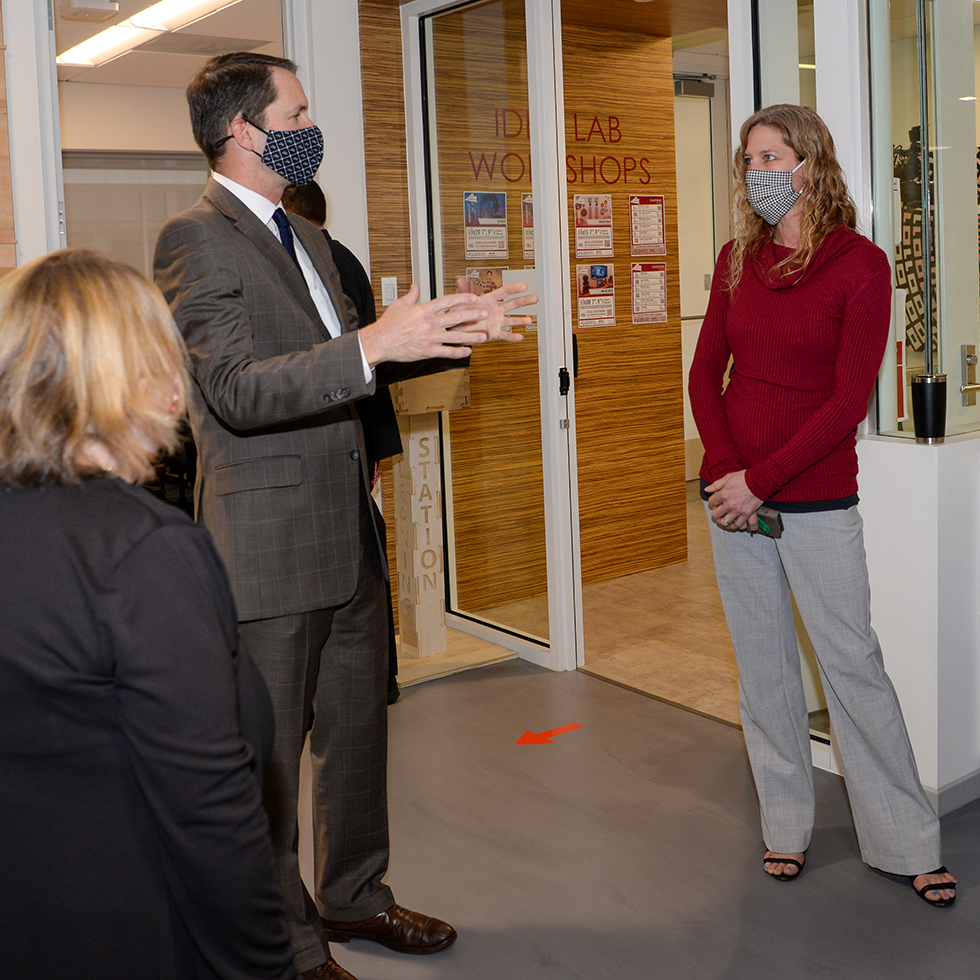
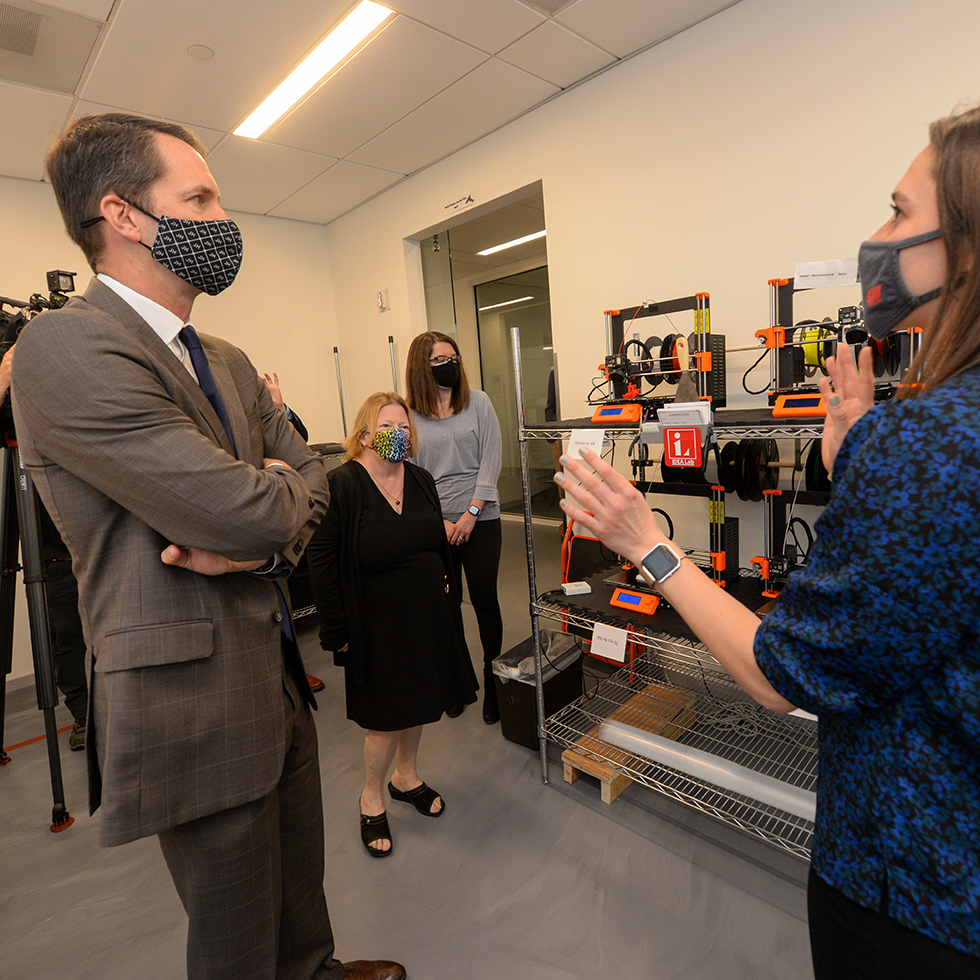

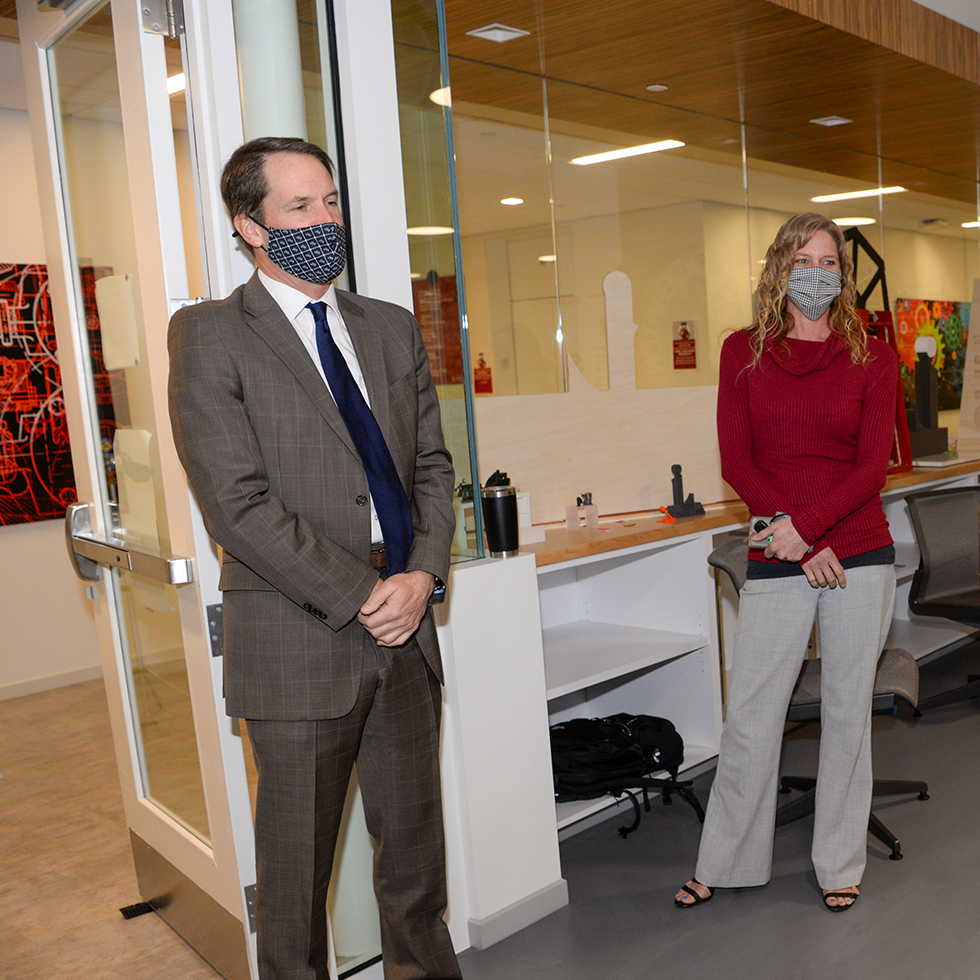
Congressman Jim Himes visits with Noyce Scholarship recipients & faculty members
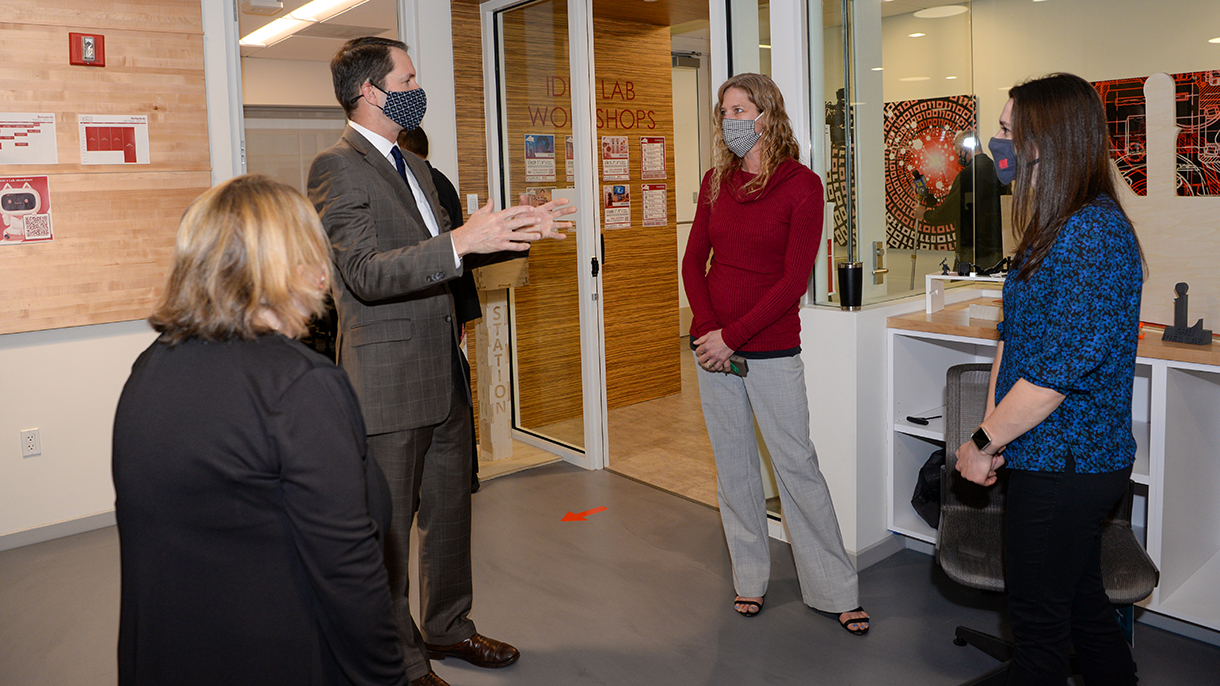
IDEA Lab
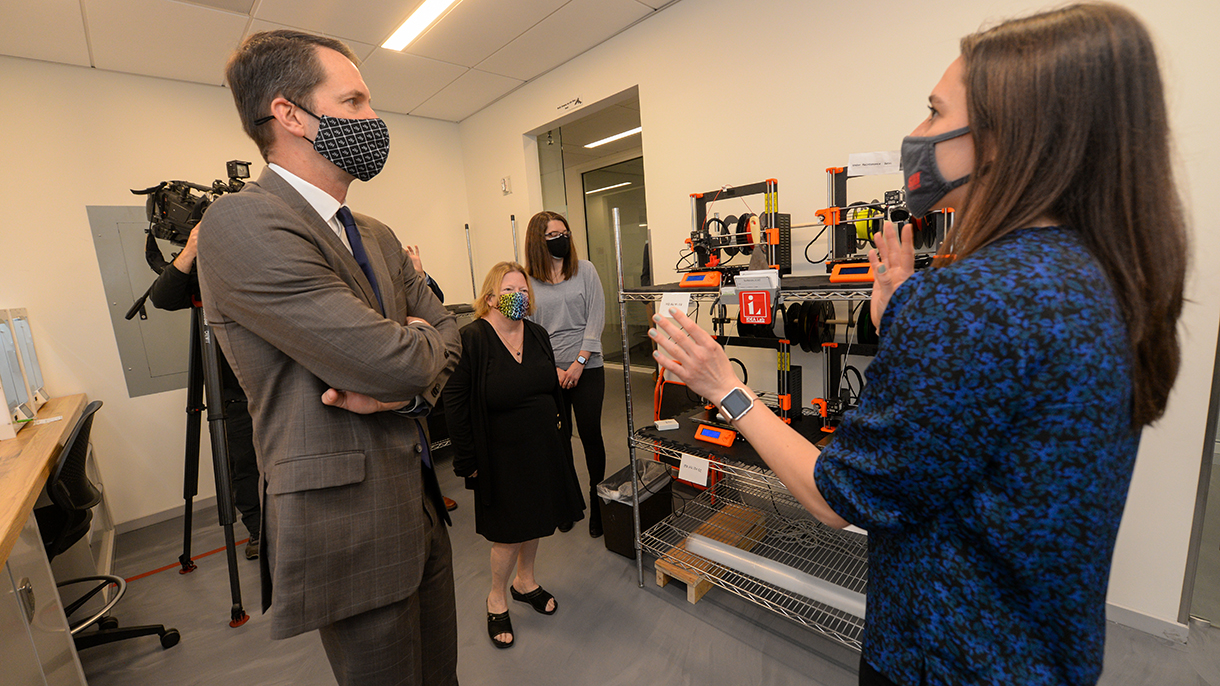
IDEA Lab

iHub
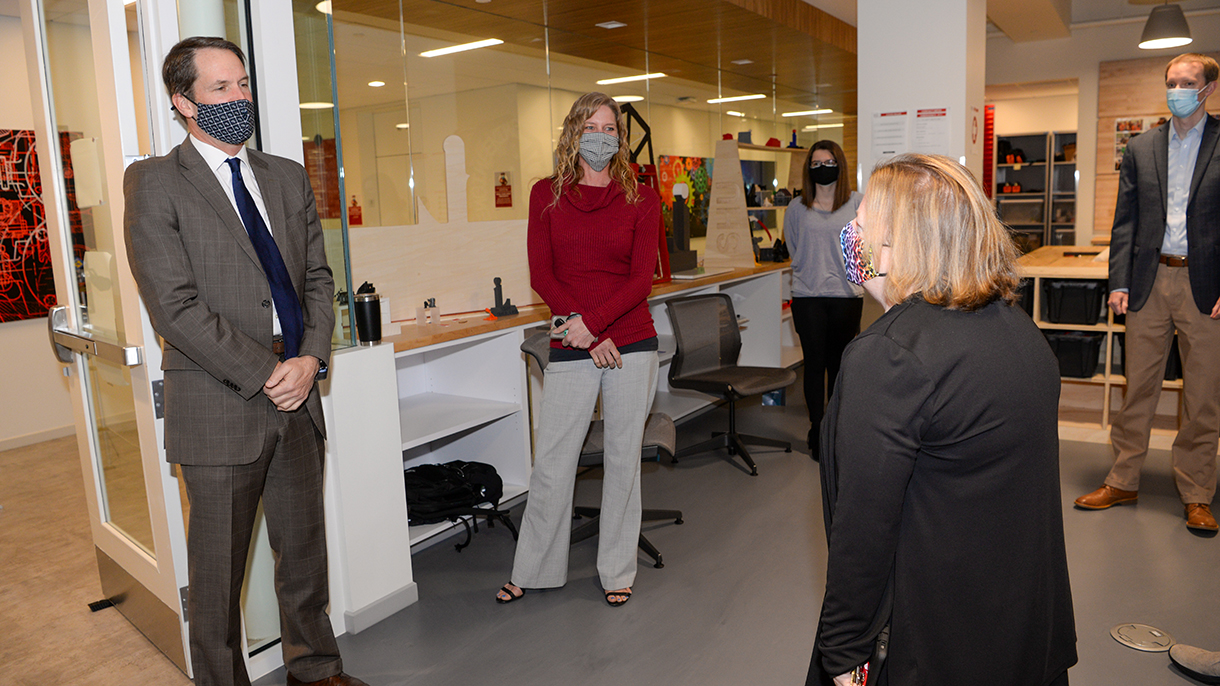
IDEA Lab
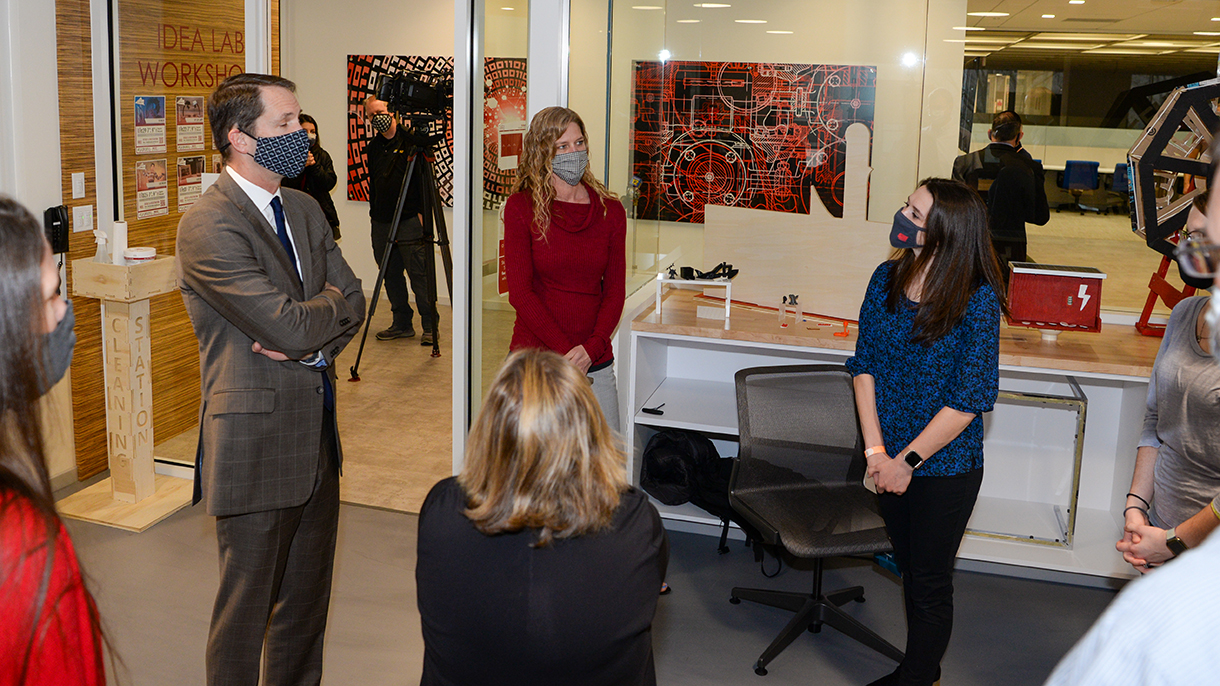
IDEA Lab

iHub
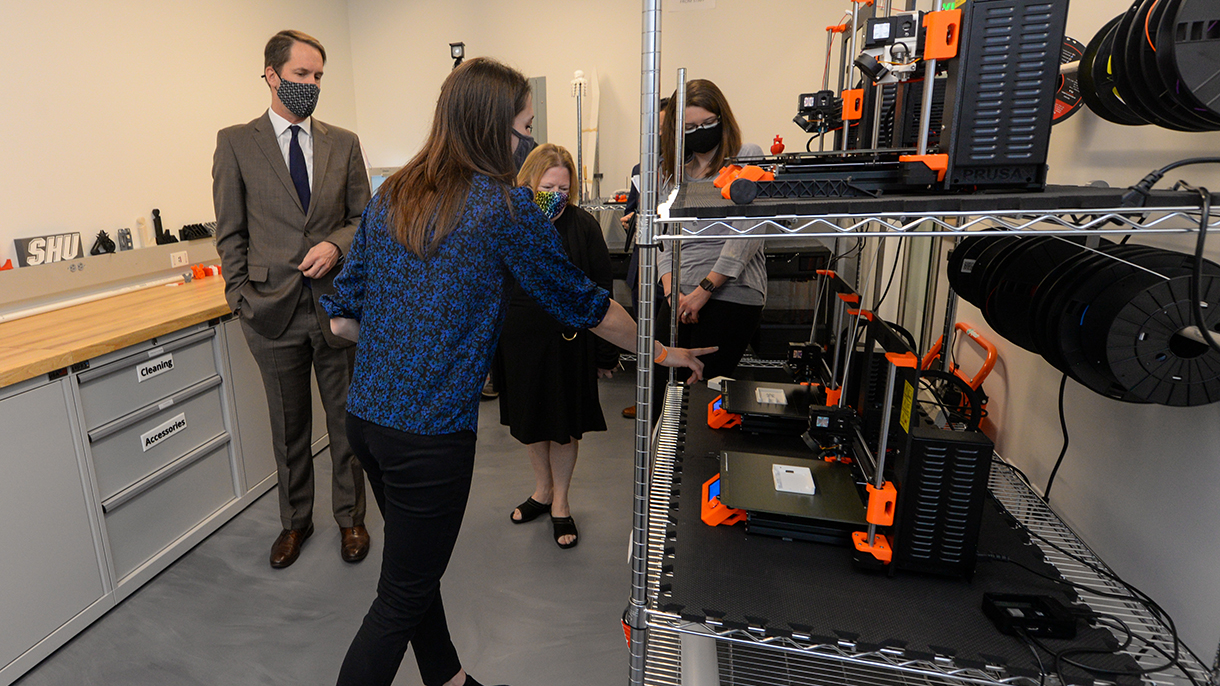
IDEA Lab
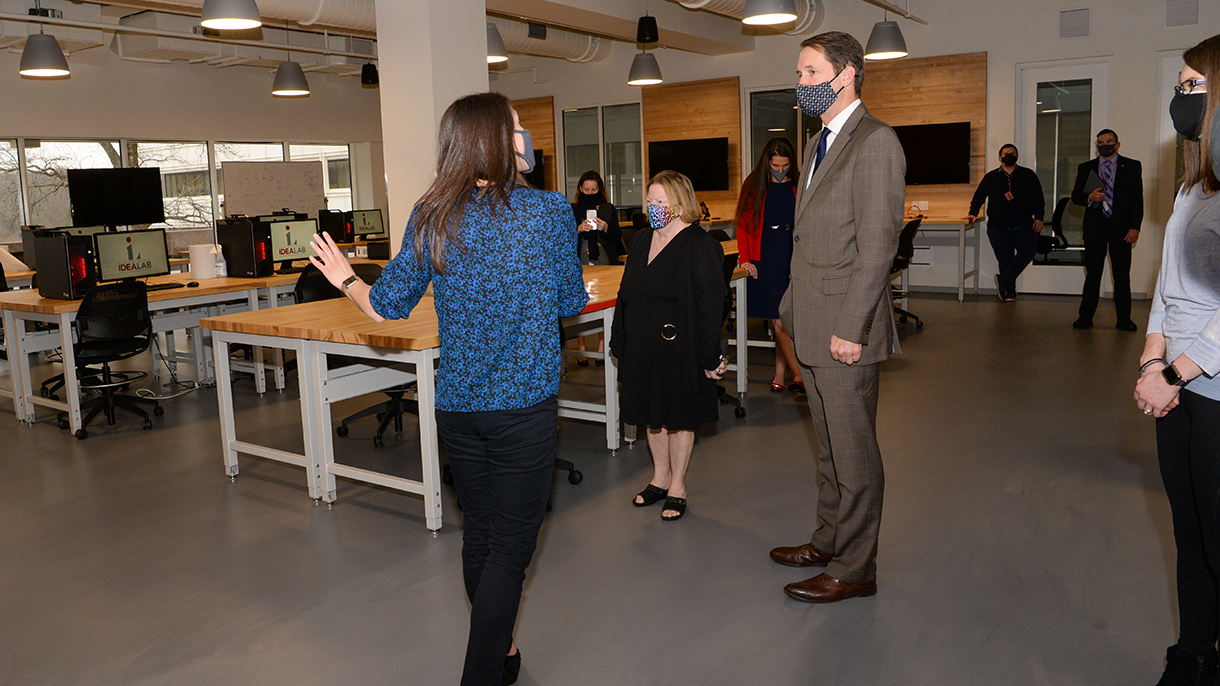
IDEA Lab

iHub
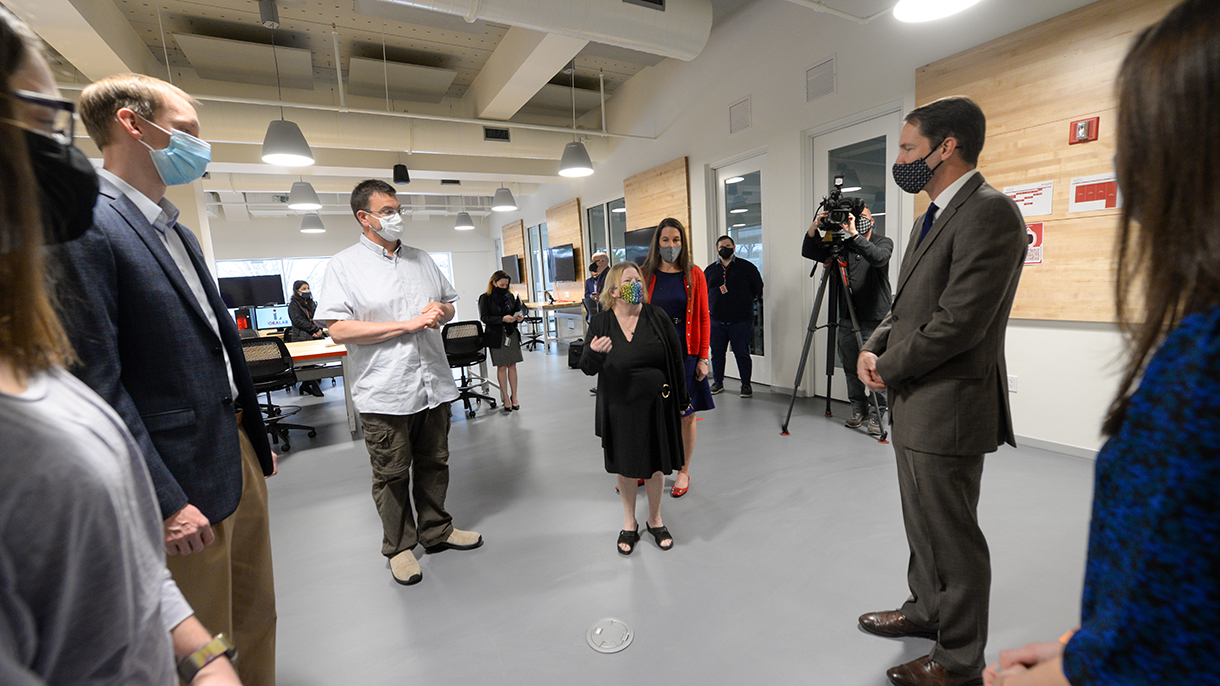
IDEA Lab
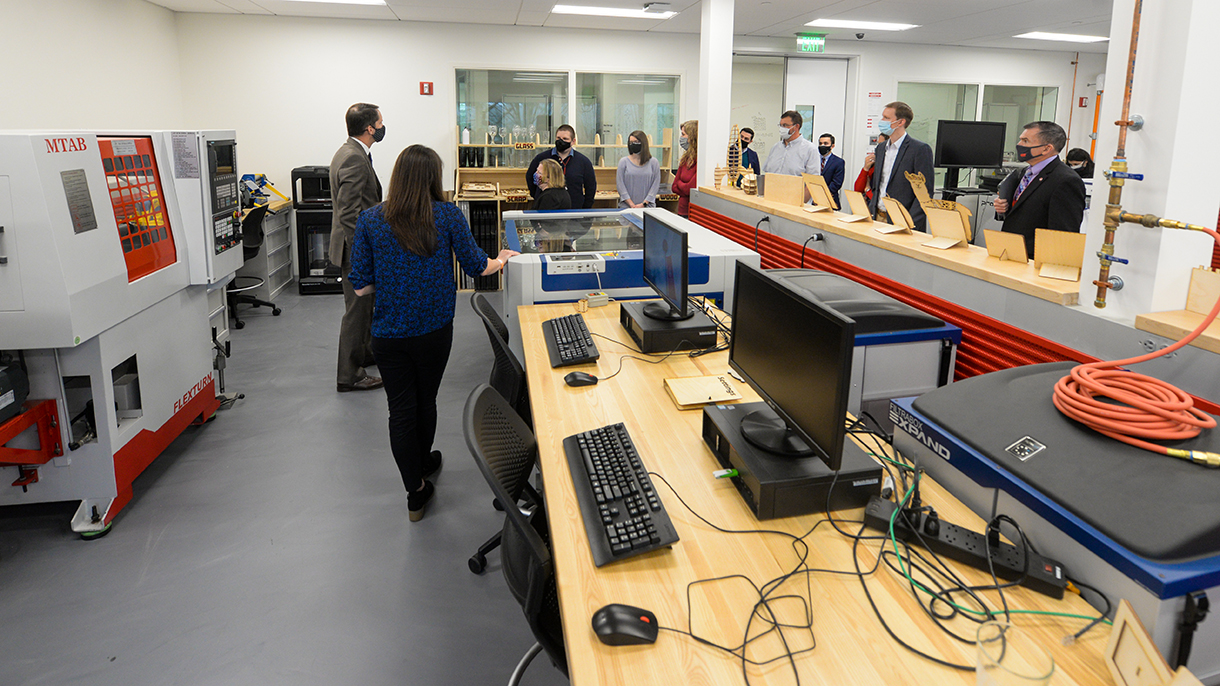
IDEA Lab
The Latest in Noyce Scholarship Program
View More News-
 AcademicsPublished:Funding will enable 18 more Noyce scholars to become STEM instructors
AcademicsPublished:Funding will enable 18 more Noyce scholars to become STEM instructors -
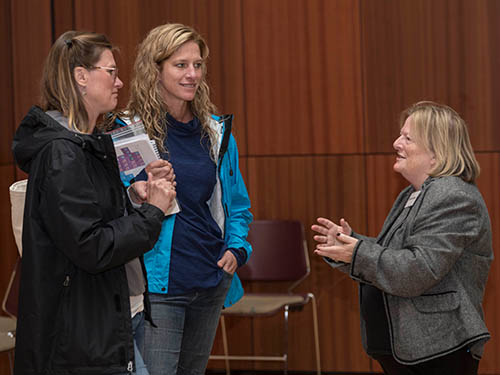
SHU Receives $1.4 Million for STEM Scholarship Program
Academics, Advancing SHUPublished:Grant aims to increase pool of highly qualified STEM educators for high-need school districts -
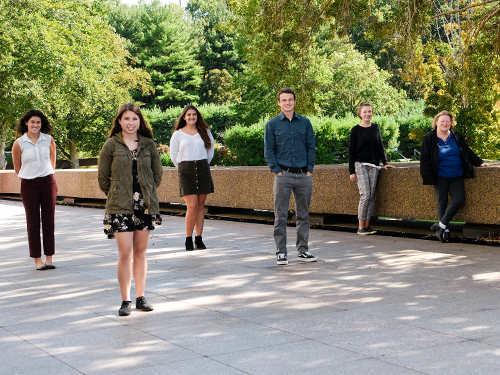
Noyce Scholars Prepare Stamford Students for the Next Stage
SHU in the News, Student Spotlight & OutcomesPublished:Virtual summer programs also help incoming sixth- and ninth-grade students know what to expect

